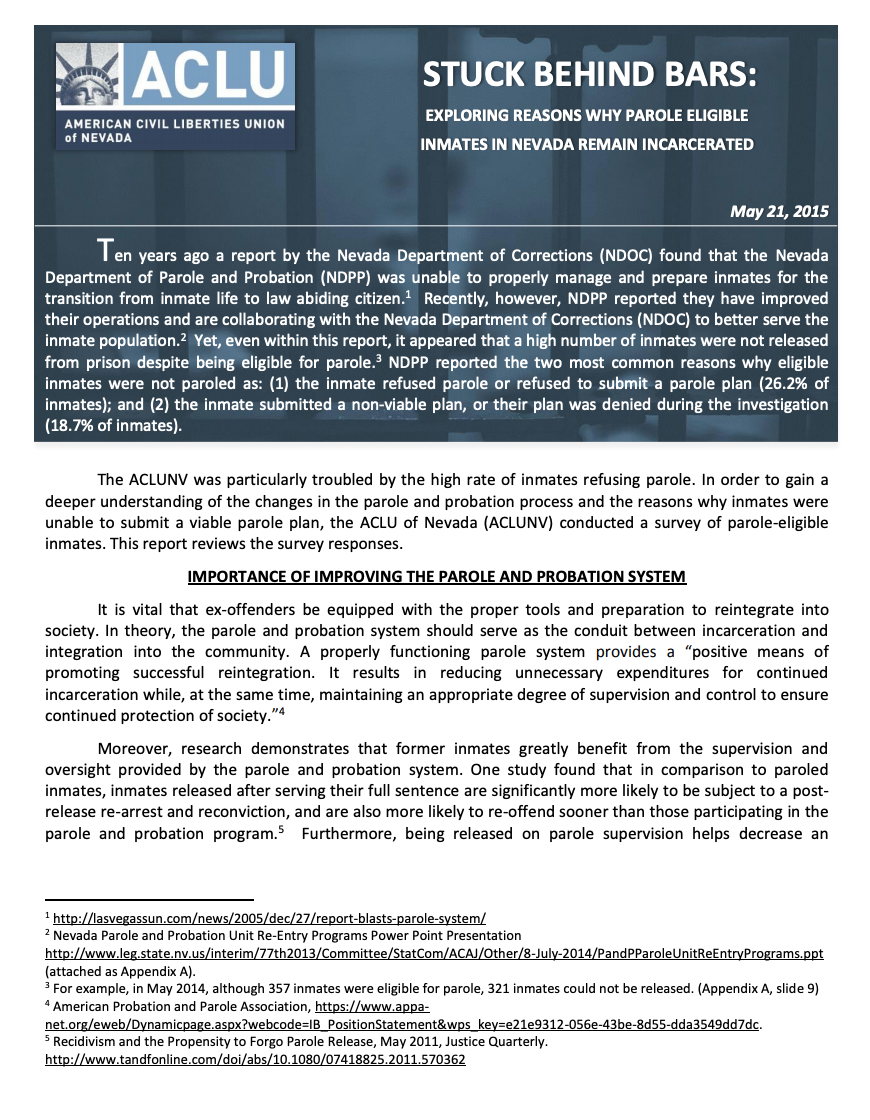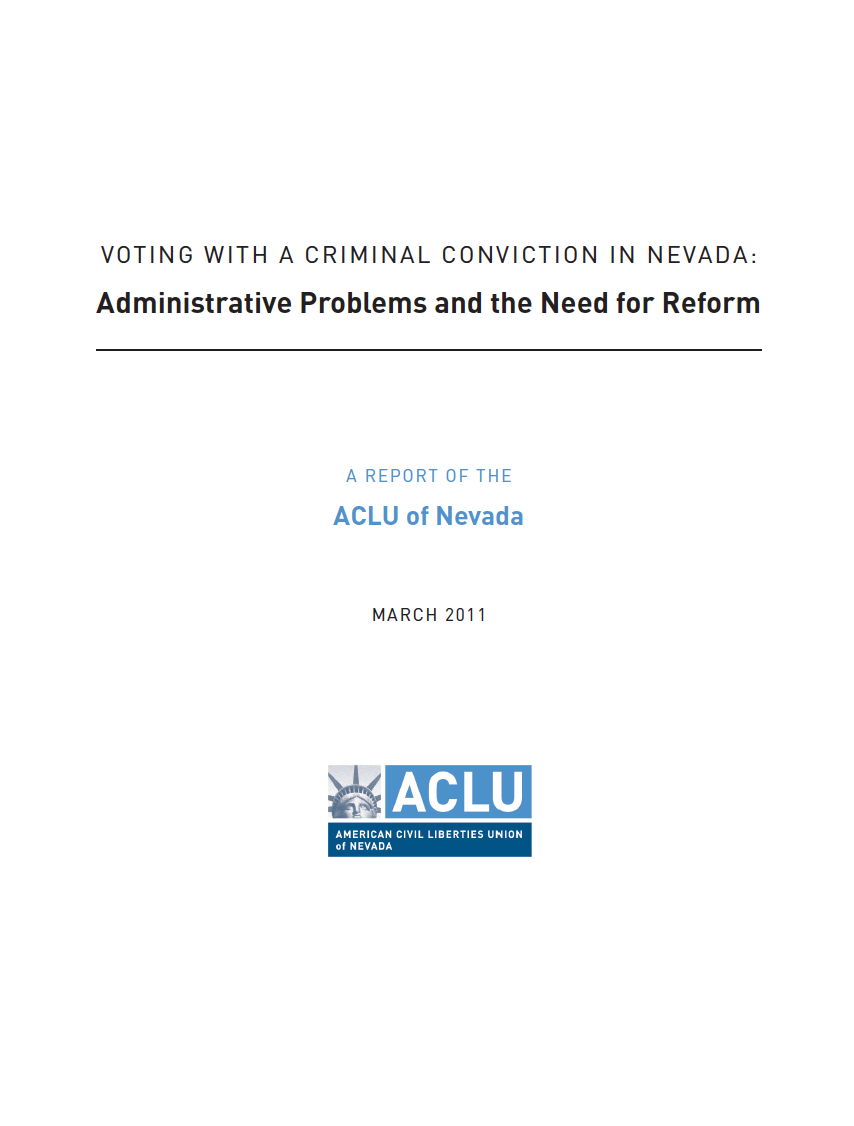Ten years ago a report by the Nevada Department of Corrections (NDOC) found that the Nevada Department of Parole and Probation (NDPP) was unable to properly manage and prepare inmates for the transition from inmate life to law abiding citizen.1 Recently, however, NDPP reported they have improved their operations and are collaborating with the Nevada Department of Corrections (NDOC) to better serve the inmate population. 2 Yet, even within this report, it appeared that a high number of inmates were not released from prison despite being eligible for parole.3 NDPP reported the two most common reasons why eligible inmates were not paroled as: (1) the inmate refused parole or refused to submit a parole plan (26.2% of inmates); and (2) the inmate submitted a non-viable plan, or their plan was denied during the investigation (18.7% of inmates).
Date
Monday, May 25, 2015 - 4:15pmFeatured image

Show featured image
Hide banner image
Related issues
Documents
Show related content
Tweet Text
Type
Menu parent dynamic listing
Show PDF in viewer on page
Style
Show list numbers
Nevada has one of the most severe and complex voter disfranchisement policies in the nation, barring individuals convicted of felonies from voting until they complete their sentences and have their voting rights restored. The process for getting one’s rights restored varies greatly based on an individual’s type, date, and place of conviction, and can be prohibitively difficult for some people.
More than 40,000 Nevada citizens, the majority of whom live, work and raise families in their communities, are barred from voting due to this restrictive disfranchisement policy. Countless more are de facto disfranchised due to misinformation and misunderstanding stemming from the complexity of the state’s policy.
Voting is an important part of the community reentry process and helps individuals with past convictions rejoin and have a stake in their communities. Indeed, research has found that people who vote are less likely to be re-arrested, and organizations like the American Probation and Parole Association have voiced their support for polices that allow people living in the community to vote. Unfortunately, the severity of the state’s disfranchisement law bars tens of thousands of Nevadans from participating in our democracy. And the complexity of the law makes it extremely difficult for elections employees to administer and for the voting public to understand.
This report summarizes research done by the American Civil Liberties Union of Nevada in 2010 about how the state’s disfranchisement law is being administered. It suggests that the complexity of the law has generated considerable confusion among elections employees, and that members of the general public are not receiving accurate information about voting with a criminal conviction.
Date
Monday, January 31, 2011 - 4:00pmFeatured image
